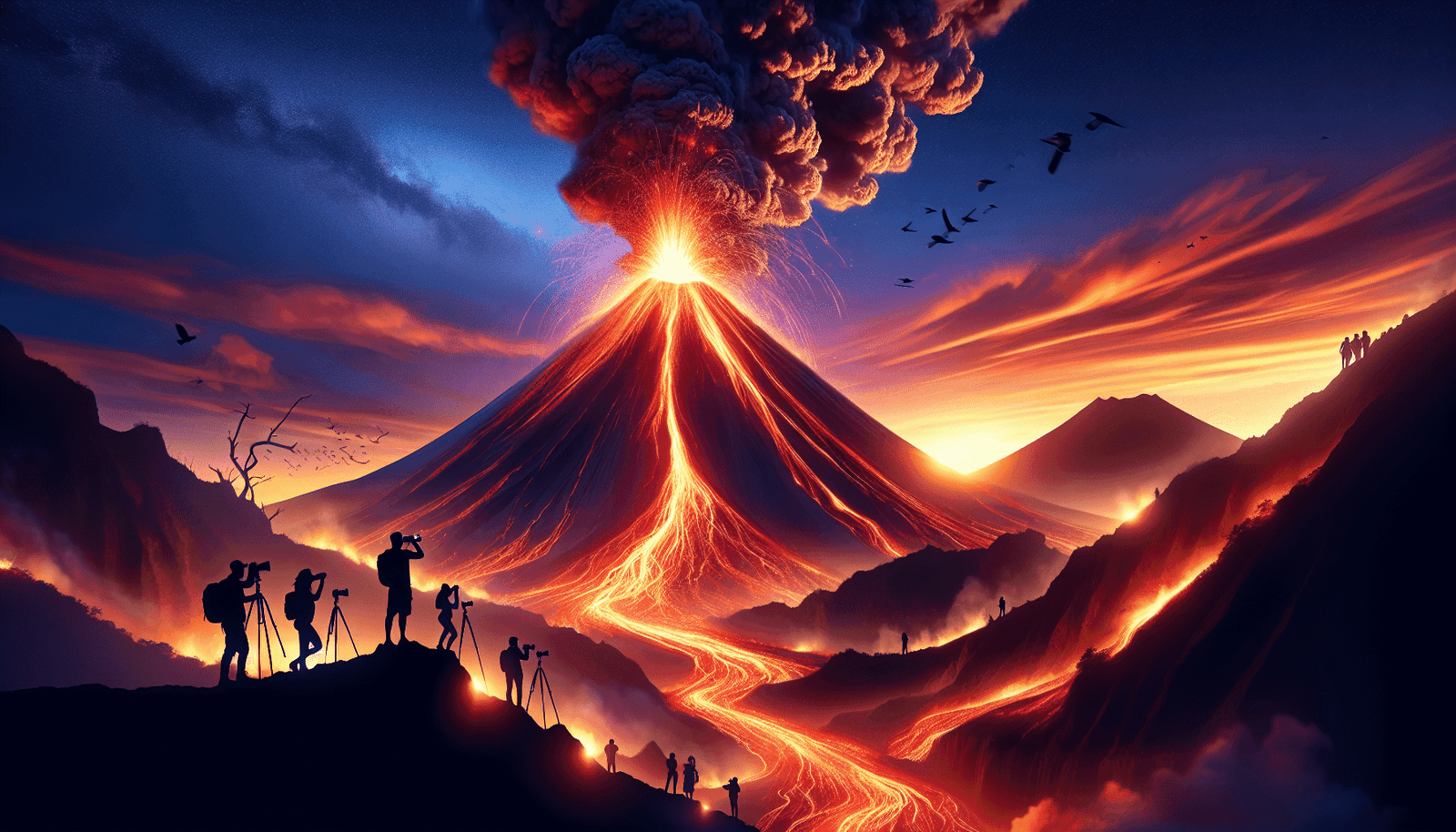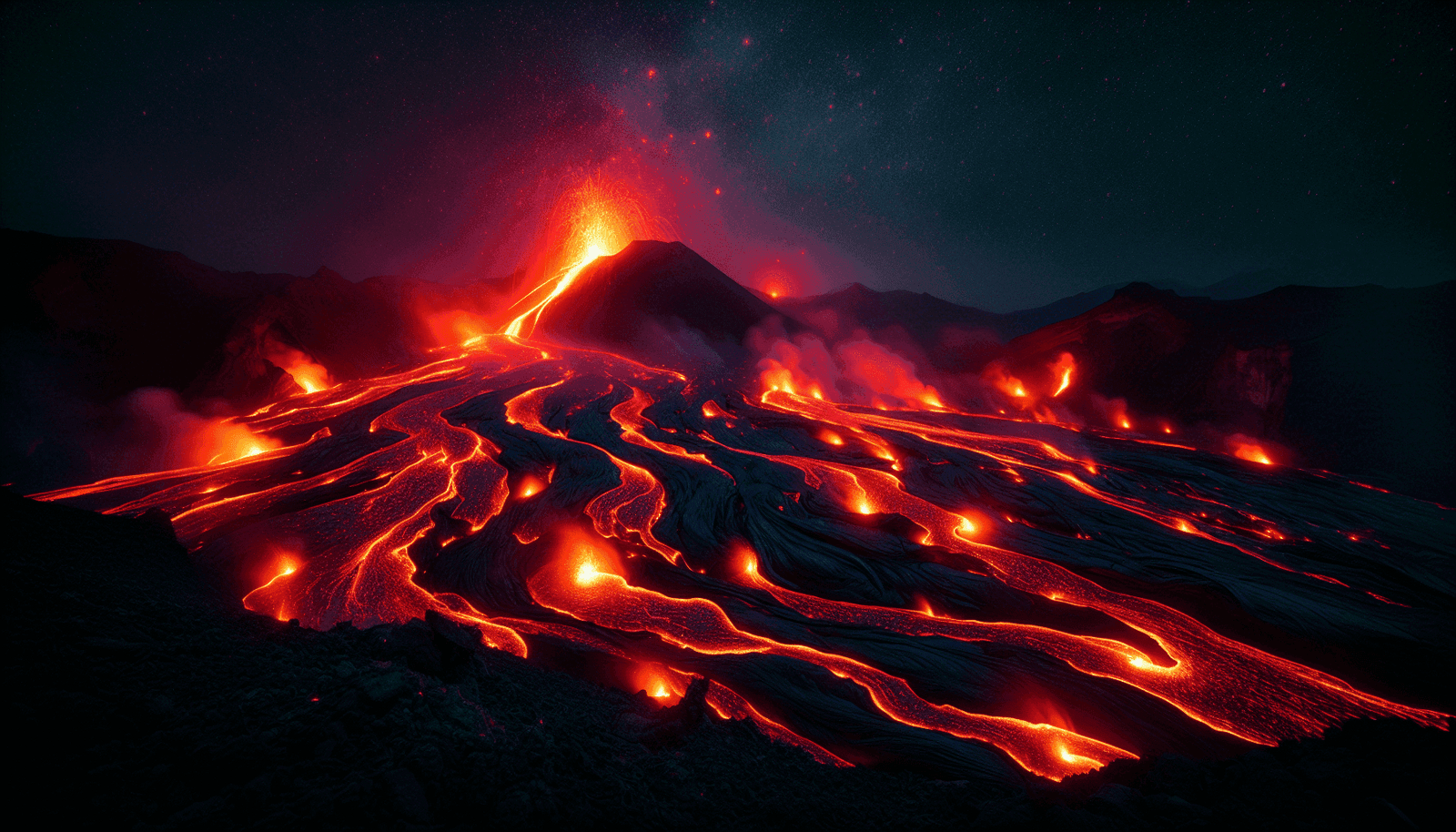Have you ever wondered how the awe-inspiring power of a volcano affects not just its immediate surroundings but also the global tourism industry? While volcanoes are incredible geological formations, they can have surprising impacts that stretch far beyond their locales. This impact is both fascinating and complex, bringing a curious blend of excitement and concern in equal measure.
Volcano Eruptions: A Double-Edged Sword
Volcanoes are a prominent natural feature that can transform landscapes and lives in an instant. Despite the chaos they can unleash, these geological giants contribute to tourism by drawing adventurers, scientists, and those fascinated by their raw power to experience them firsthand. For some, the allure of witnessing a volcano’s explosive force up close is irresistible. For others, volcanoes become treacherous obstacles to travel plans, economic stability, and safety.
The Thrill of Adventure Tourism
For thrill-seekers, volcanoes offer unique opportunities. Imagine hiking up a steep trail with the scent of sulfur tingling in your nostrils, or feeling the ground rumble beneath your feet as you watch molten lava light up the night sky. Adventure tourism thrives on such experiences, and many have centered their entire travel itineraries around visiting active volcanic sites. Destinations like Mount Etna in Italy or Kilauea in Hawaii are perennial favorites, drawing visitors eager to witness nature’s fiery display.
The Drawbacks: Cancelled Trips and Travel Interruptions
However, not all impacts of volcanoes are thrilling. High-profile eruptions can lead to widespread travel disruptions. Airports close, flights get canceled, and itineraries are scrapped or severely altered. An example is the Eyjafjallajökull eruption in Iceland in 2010, which created an enormous ash cloud that grounded thousands of flights across Europe. The ripple effect was costly and stressful, rerouting travelers and stranding tourists away from their planned destinations.
The Economic Ripple Effect
Volcano eruptions can drastically impact local economies, especially those heavily reliant on tourism. While the initial tourism decline following an eruption can be significant, the aftermath varies greatly depending on several factors, including the duration of the eruption and the volcano’s popularity.
Short-Term Economic Impact
In the short term, nearby businesses, from hotels to tour operators, can suffer substantial losses. An eruption might lead to extensive damage to infrastructure, necessitating costly repairs and recovery efforts. The resulting decrease in visitor numbers can exacerbate the financial hit, affecting both the public and private sectors.
Long-Term Opportunities and Challenges
Conversely, some locations witness a post-eruption surge in interest, as curious visitors come to see the aftermath. This can sometimes revitalize local economies if harnessed effectively. For instance, new lava flows or changes in landscape may create fresh attractions, while media exposure might boost interest in a previously less-known destination.
Safety Concerns and Precautions
When it comes to volcanoes, safety is paramount. They are unpredictable, and their eruptions can vary from gentle lava flows to catastrophic explosions. It’s essential for potential visitors to be aware of the inherent risks and for authorities to implement appropriate safety measures.
Monitoring and Early Warning Systems
Modern technology plays a key role in monitoring volcanic activity. Seismographs, satellite images, and gas sensors help scientists predict eruptions, allowing for timely evacuations and risk assessments. However, despite advancements, predicting eruptions with absolute certainty remains a complex challenge. This unpredictability can hinder tourism by instilling fear and uncertainty among travelers.
Educating Tourists
Education is another vital component in ensuring safety. Informative campaigns can inform tourists about potential hazards and safety protocols. Well-prepared tourists not only minimize personal risk but also support local economies by continuing to visit regions perceived as dangerous.
The Environmental Impact
Volcano eruptions naturally reshape local landscapes in both destructive and creative ways. The environmental consequences extend beyond human concerns, affecting wildlife habitats, air quality, and even climate patterns for years to come.
Wildlife and Habitat Changes
The immediate aftermath of an eruption can be devastating for local wildlife. Habitats are disrupted, food sources become scarce, and ecosystems may collapse. Over time, however, volcanic activity can lead to new ecosystems, with rich soil promoting biodiversity. This natural rejuvenation can eventually become a draw for eco-tourists and researchers.
Air Quality and Climate Effects
On a broader scale, volcanoes can influence air quality and climate. Eruptions release particles and gases like sulfur dioxide into the atmosphere, which can lead to air quality issues and affect travel safety. Large eruptions even have the potential to create temporary climate shifts, cooling global temperatures as volcanic ash and aerosol particles block sunlight.
Cultural and Historical Significance
Volcanoes are not just physical phenomena; they are deeply ingrained in the cultures and histories of many communities. Stories, myths, and legends often surround these natural wonders, which for many, hold spiritual significance.
Cultural Heritage and Tourism
Exploring the cultural heritage associated with volcanoes can add another layer to the travel experience. Sites like Mount Fuji in Japan or Mount Vesuvius in Italy are not just geological marvels; they are cultural icons. Visiting these sites offers tourists insight into the traditions and beliefs of the people who live in their shadows.
Preserving History
Volcanic landscapes hold clues to the past, providing valuable information about historical events, ancient civilizations, and long-term environmental changes. Efforts to protect these sites can preserve important historical records and support heritage tourism, benefiting local economies and cultural appreciation.
The Role of Technology and Innovation
As technology evolves, new opportunities arise for managing the impacts of volcanic activity on tourism. From advanced prediction models to innovative tourist experiences, technology plays an increasingly important role.
Virtual Tour Experiences
For those unable to visit volcanoes in person due to eruption risks or logistical constraints, virtual tours provide an alternative. These experiences offer an immersive way to explore volcanic sites without leaving home, utilizing video, virtual reality, and interactive elements to replicate the excitement of a physical visit.
Responsible Tourism Practices
Innovation also lies in promoting sustainable tourism practices that respect and preserve volcanic environments. This includes supporting eco-friendly accommodations, reducing carbon footprints, and encouraging responsible visitor behavior. With technology, travelers can make informed decisions, enhancing experiences while minimizing negative impacts.
Balancing Risks and Rewards
While the impact of volcano eruptions on global tourism is undeniable, a balanced approach offers significant rewards. Balancing the immediate adrenaline rush and potential inconveniences with long-term benefits is crucial.
The continued draw of volcanoes as desirable travel locations stems from their unparalleled natural beauty and the unique challenges they offer. Understanding the complexity of these natural systems, combined with proactive safety measures and considerate tourism practices, can help mitigate the negative aspects without sacrificing the wonder they inspire.
Remember, your visit can support both the local economy and the ongoing preservation efforts that ensure these magnificent sites remain protected and accessible for future generations. As you plan your next adventure, consider the multifaceted influence of volcanoes, embracing the opportunity to witness their power and beauty while contributing positively to their future.



